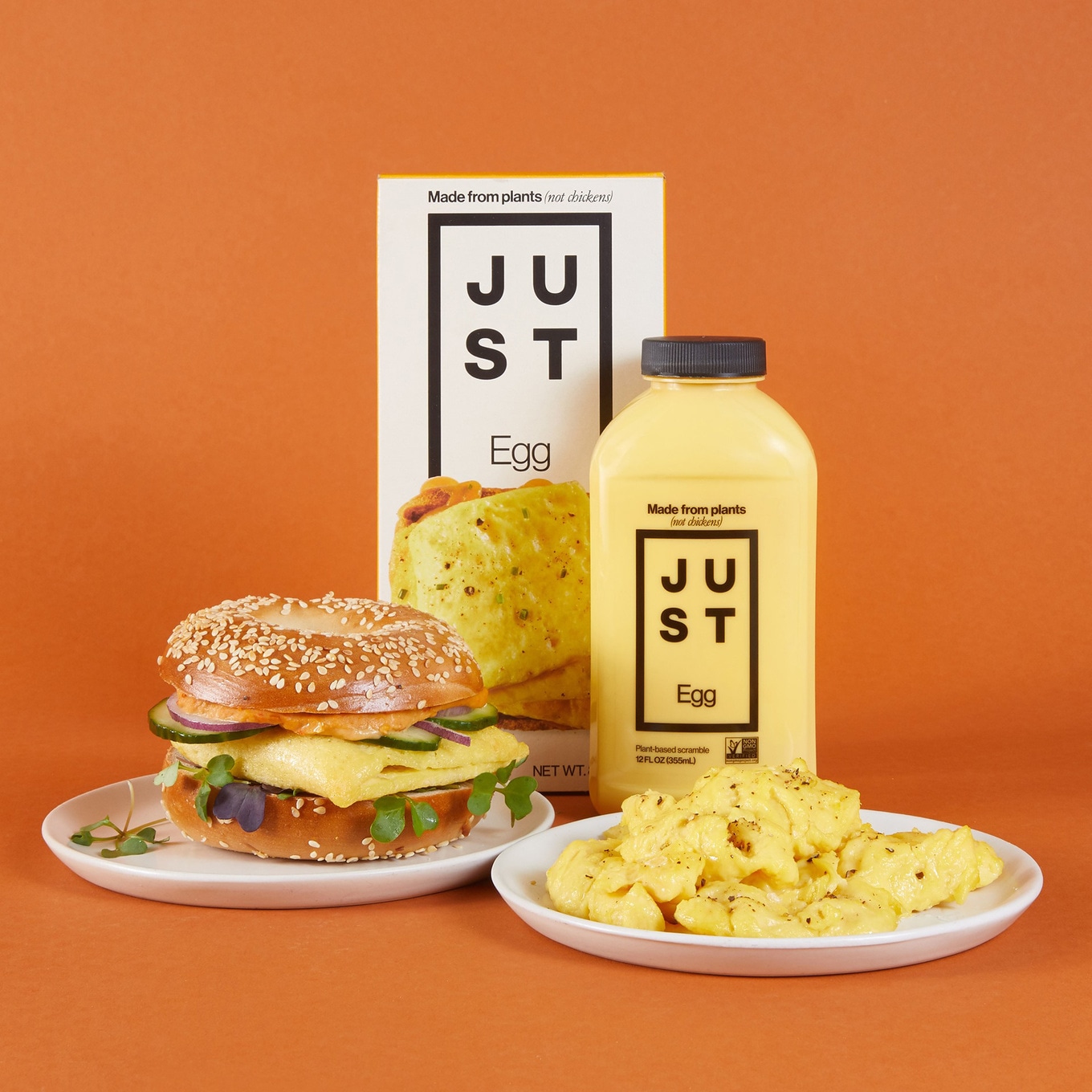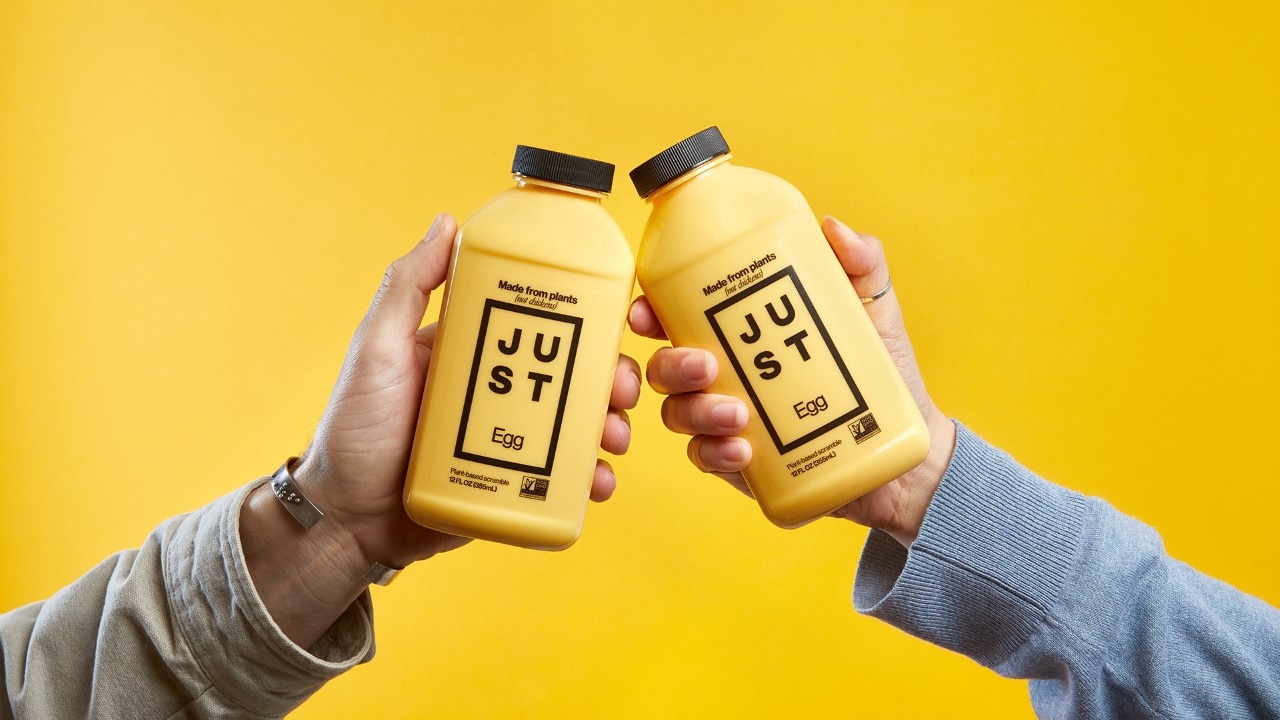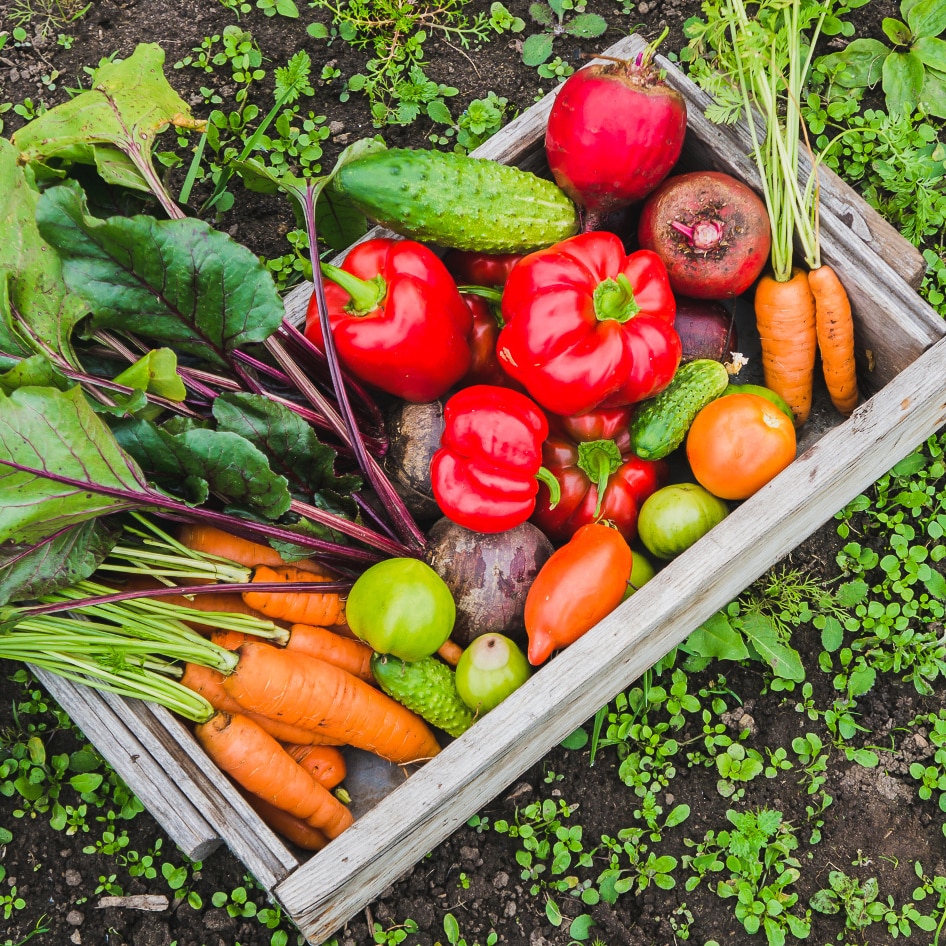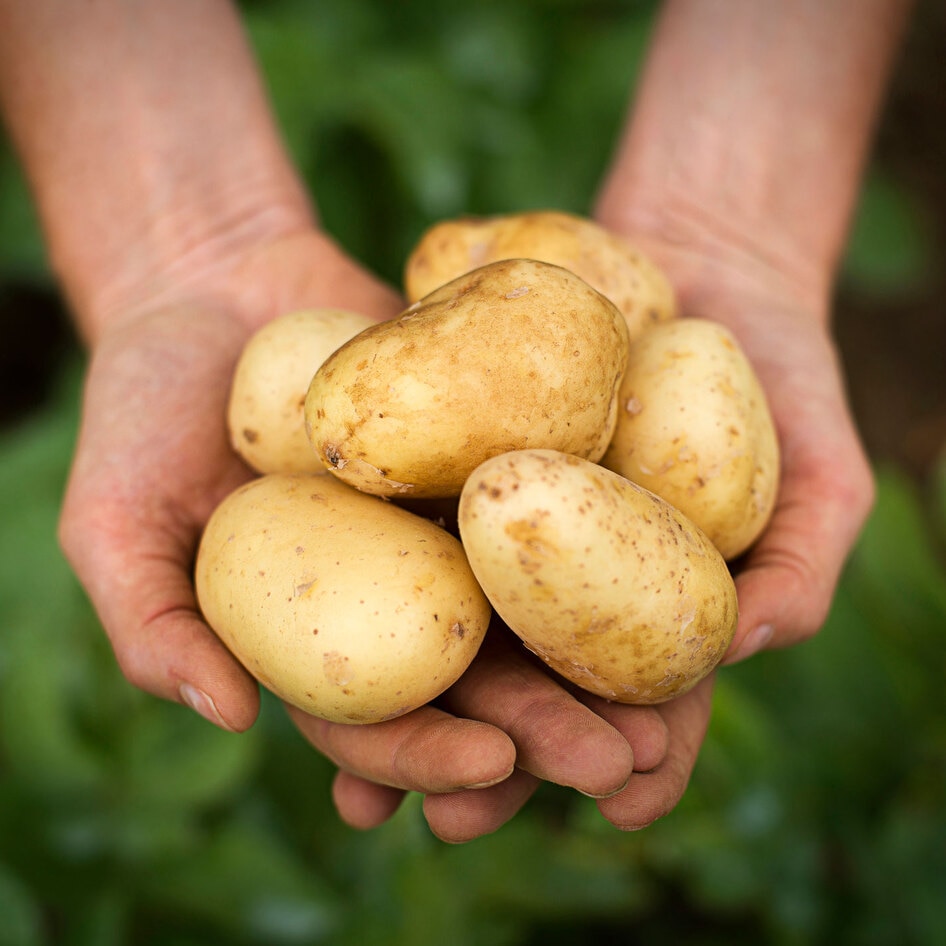In 2019, ready-made vegan eggs mostly existed inside the kitchens of home chefs, who turned to clever substitutes such as bananas, apple sauce, chia seeds, and powdered egg replacers. Back then, vegan omelets were just a magic trick cooks performed with tofu spiced with kala namak (a sulfuric black salt)
But in just four years, while traditional eggs continue to face struggles—such as recurring bird flu outbreaks—the vegan egg market has grown leaps and bounds.
A new report from market research firm Technavio is forecasting that the sector will grow at a compound annual growth rate of 8.3 percent from 2022 to 2027. This amounts to a significant market increase of approximately $911 million.
The primary forces behind this anticipated growth are health benefits, such as zero cholesterol and lack of saturated fats, ethical commitments to animal welfare, and increased environmental consciousness.
 Eat Just
Eat Just
North America is projected to play a significant role, contributing around 42 percent of the global market increase. And soon, consumers who have yet to encounter plant-based eggs will soon know all about them, according to industry leader Eat Just, maker of the popular Just Egg which holds 99 percent of the market share.
“Consumer education is another area we’ll continue working on,” Andrew Noyes, Head of Global Communications at Eat Just, tells VegNews. “While millions of people know and love Just Egg, because this is still such a new category, many are unfamiliar with our brand and plant-based eggs in general.”
Vegan eggs take flight
What’s wrong with conventional eggs? For one, producing the 1.4 trillion chicken eggs consumed globally each year requires 93 million acres of land and 51 billion gallons of water, or 53 gallons per egg. Eat Just’s vegan egg production requires a mere fraction of these resources, using 98 percent less water, 86 percent less land, and 93 percent fewer carbon dioxide emissions.
“People have known about veggie burgers for generations and they understand why it’s important to reduce meat consumption,” Noyes says. “But it’s not a given that they’ll make the same assumption for eggs, so we can help educate and create better understanding.”
To support its mission of making better eggs, Eat Just recently concluded a financing round led by VegInvest and Ahimsa Foundation, organizations that share the company’s mission of replacing animal-derived foods with plant-based alternatives.
“When we launched Just Egg in national retail in 2019, we virtually created a brand new category,” Noyes elaborates.
 Eat Just
Eat Just
These days, the company’s vegan eggs—made with a base of mung beans—are available right next to conventional eggs at grocery stores, inside breakfast sandwiches at 7-Eleven stores in Canada, at bookstore chain Barnes & Noble, and even in the air through United Airlines.
By the numbers, Just Egg is available in more 48,000 retail and 3,300 foodservice points of distribution across North America, and an additional 10,000 industrial points of distribution through branded partnerships.
Eat Just also touts a robust 51 percent repeat purchase rate.
The company has three overarching objectives to bolster its market position: affordability, functionality, and consumer preference for Just Egg over conventional eggs. Over the years, this strategy has led Eat Just to refine its recipe in many ways and more innovation is in store in 2023.
 Eat Just
Eat Just
“Later this year we’ll introduce our newest formulation of Just Egg that represents a big improvement in aeration in baking, emulsification in sauces and dressings, as well as flavor and texture for everyday egg dishes like scrambles and omelets,” Noyes says.
Just Egg goes to school
To date, Eat Just has sold the plant-based equivalent of more than 400 million eggs, saving more than 14 billion gallons of water, 21,000 acres of land, and 69 million kilograms of carbon dioxide emissions.
Younger demographics are consistently more aware of how their food choices impact the climate crisis and Eat Just is meeting these future leaders where they are at educational institutions.
As of September 2023, Just Egg was available to students at campus dining halls in more than 120 institutions across the United States, representing a 45 percent increase over last year—when the company piloted a field marketing program at 40 college campuses to introduce the sustainable vegan egg to students.
 Eat Just
Eat Just
Eat Just is also working with campus foodservice operators to showcase the versatility of its vegan eggs, which come in pourable and folded formats.
“At this point, we’re encouraged by the rapid growth and excited that so many students can choose a product like Just Egg to more easily match their dietary preferences, allergy requirements, or beliefs with what’s on their plates,” Noyes says.
The future of vegan eggs
Technavio’s report suggests that vegan eggs could displace as many as 2.6 billion chicken eggs by 2028, and Eat Just appears well-positioned to lead this transformation.
Currently, the company is laser-focused on reducing production costs to make Just Egg a more affordable option. In addition to the forthcoming innovation, Eat Just also wants to continue improving functionality and taste to a point that 75 percent of consumers choose its vegan eggs over traditional eggs.
“When we’ve achieved those things, that’s the point where we’ll start to see Just Egg begin to displace conventional eggs,” Noyes says.
And if you’ve been staring at that empty space on grocery shelves where your favorite vegan eggs should be, fear not: Eat Just is undergoing a packaging refresh to make its products even more sustainable.
“The plastic bottle Just Egg is currently sold in was never our ideal,” Noyes says. “At the time we launched, it was a trade-off for getting the product to market quickly and starting to do good with the product itself while we figured out a more sustainable packaging option.”
 Eat Just
Eat Just
“We’ve always known we can do better, and it’s been a lot more difficult than people would like to think to move away from plastic and toward a more sustainable carton,” Noyes says.
The popular vegan eggs, housed inside bright yellow cartons, will be readily available by the beginning of 2024 when Eat Just anticipates the packaging refresh will be complete.
For the latest vegan news, read:
JUMP TO ... Latest News | Recipes | Guides | Health | Shop
Editor’s note: the number of eggs in the headline has been updated for accuracy








.jpg?sha=1635cef6b098242b)
